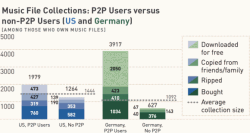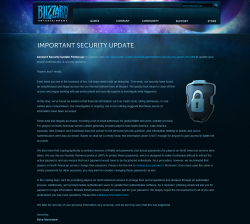Welcome to November. Not much news this week, despite a very active search. You have to think that Hurricane Sandy might be partially responsible for the relative news lull, although with the US election coming up too (and Halloween), there’s only so much news cycle to go around. As usual, the best way to help Hurricane Sandy victims is to donate via the Red Cross, as they’re best placed to get goods and supplies to people that need it the most.
So without a lot of news, I’ll be talking out of my you-know-what about a wider range of topics that are of interest, but not necessarily stuff that’s usually talked about here (or stuff that wasn’t important enough to get its own news article, but still nevertheless interesting). Since I’e already mentioned the US election, I might as well post my electoral vote prediction. I’m a huge election nerd, although I don’t think I’ve paid as much attention to this presidential election as the last one, it’s still “fun” to make a few predictions or two. I don’t think Romney has much of a chance to be elected president, and I don’t think this election is as close as the media wants us to believe (a close election = better ratings, no doubt). Based on the polls and analysis I’ve read, I think only Florida, Colorado and Virginia are really up for play, and even winning all three won’t really help Romney without Ohio, which I think is just out of reach.
Anyway, we’ll find out one way or another on Tuesday, which is also Melbourne Cup day here. I might just put money where my mouth is on Tuesday with a flutter on horses and the election in which one of the candidate’s wife owns a horse.
Oh yes, the news. Here we go …

When Megaupload was shuttered by the US government back in January, the entire file hosting industry went crazy overnight it seems trying to position themselves away from being the next target of legal action. Those at RapidShare must have been quietly please at the prescient decisions they had already taken to move away from the, often unfair, association of the services they provide to web piracy. But even RapidShare, having been removed from the MPAA/RIAA’s “bad websites” list a year earlier, was taken aback at scale of the Megaupload seizure and reacted, and possibly overreacted, by throttling free downloads to a snail paced 30 kB/s.

RapidShare removes download speed throttling for its free download service, originally put in after Megaupload’s seizure to repel pirates from using RapidShare as a replacement
It was only until this week that RapidShare felt safe enough to remove this throttling, but only because they have “more efficient” measures on the way, to be announced towards the end of 2012. I guess there just had to be a more efficient way of repelling pirates than to mangle their own services, even for those that were using the site legally.
In my mind, the whole industry is still in “freaked out” mode over the Megaupload thing, forgetting that the law is actually on their side as long as they properly enforce the DMCA, and do not reward users for uploading popular (aka pirated) files. RapidShare, perhaps because they were always one of the larger targets, I think have gone overboard with their anti-piracy initiatives. I don’t think they’ll ever convince rights holders that they warrant the right to exist, so doing what’s required is, well, all that’s required.
The only person not freaking out appears to be the person most affected, Kim Dotcom. He has promised that the next Mega-project, Megabox, will be launched in January, almost exactly a year after Megaupload’s seizure. This too may be an overreaction to the seizure, trying to get back into a game which may already be lost, but at least it’s not a cowardly reaction.
Speaking of overreactions, the UK’s Telegraph has a blog in which the blogger, James Rhodes, described his experience attending Sony’s Skyfall (trailer) premier in London, and how he felt more like a suspected terrorist than an invited guest, thanks to the anti-piracy measures being deployed.
It’s no longer a surprise to see cinema stewards spying on you during a session with night vision goggles, but when Rhodes was warned via leaflet, and email, that “physical searches of your belongings and person” was going to happen at the premier, he must have wondered if he was actually going to a premier, or to a high security facility (like MI6 HQ perhaps)? And what dangerous things were the security guards looking for? Digital cameras and smartphones, most likely, or any other recording devices (I wonder if legal weapons such as knives were actually allowed to be carried inside, which would be kind of ironic).
To me, all of this paranoia shows us just how insecure movie studios are these days. But not about piracy – it has always been around – but about the quality of their films. They do produce a lot of crap these days (and at a much higher cost than ever before, thanks to lazy and liberal use of CGI), and so I guess it’s only natural that their first reaction to their own films is that people aren’t going to pay for them if they don’t have to. But the truth is that good films, like Skyfall according to reviews, don’t have a lot to fear from pirates at all, especially not during theatrical release. Going to a cinema and watching a movie on the big screen has no real illegal alternatives, and if people are not going, it’s more to do with their perception of the fees being not worth it due to the poor quality of the film, the presentation, or just the high cost of it all. Studios have taken filmgoers for granted for too long, and when market forces and competition (yes, piracy is a competitor, if not for the theatrical run, then for the home video release at least) calls on them to up their game and produce better (even if it means fewer) products, they have been far too arrogant in their assumption that all their misfortune is completely down to “thieves”.
Every industry has to adjust to changing consumer demands. Why should be the film industry be any different?

A major change is happening with the home video market, but for the most part, studios have embraced it, if not 100% enthusiastically. Everyone thought that the logical successor to DVDs would be Blu-ray, but I think the actual successor is streaming video – from the sales figures, in which every percentage in decline in DVD is matched by an increase in streaming (with Blu-ray doing its own thing, mostly), it seems this is very much the case.

Amazon Prime is gaining market share at the expense of Netflix, but it’s still a long way off from being truly competitive
As a keen subscriber of Amazon’s Prime Instant Streaming service, I’ve personally seen the service grow from a handful of good shows and movies to a service that, as long as it continues to grow, may one day challenge the behemoth that is Netflix. There’s still not enough TV shows and new release content, but it’s getting there, and thanks to the Kindle Fire, Amazon has its own hardware platform to promote the service as well (a strategy that has worked so well, that both Google and Apple have both decided to play catch-up).
And a new survey seems to confirm that Amazon Instant is fast becoming a player in the lucrative subscription VOD market, with 22% of those surveyed now a member, up 5 points from seven month ago. That’s still nowhere near Netflix’s dominant position of 82%, but Netflix’s share has shrank 9% during the same period, which might be a cause for concern for the company.
For transactional VOD, Apple’s iTunes is still the most popular platform, with 16% of those surveyed having purchased content. This only represents a single percentage point growth, so there’s definitely more potential in SVOD (I still think Apple will have a say in this, at some point).
For devices used to consume content, for the first time, the iPad overtakes connected Blu-ray players as the most popular platform (32% vs 31%, changed from 25% vs 33% back in February). No doubt Amazon’s decision to release an iOS app for their streaming service might have played a factor here, as few Blu-ray players actually support Amazon Prime. Amazon has so far revealed no plans to have an Android version of their streaming app, most likely in an effort to prevent the cannibalization of Kindle Fire sales, even though this would greatly help with the adoption of the streaming service – this is where it still fails to properly compete with Netflix, which is available everywhere. Still, the Kindle Fire platform has proven a success for Amazon, if for no other reason than the fact that both Google and Apple have copied Amazon’s play with their own 7″-ish, video friendly tablets.
So I’m betting you’ve heard about the almost too strange to be true story of the sale of Lucasfilms to Disney, and the release of more Star Wars movies starting in 2015. Reaction to the announcement has been all over the place, as the thoughts of Disney getting their hands on Star Wars left a bad taste in people’s mouths. I’m actually quite positive about the whole thing, because I think George Lucas has taken the Star Wars franchise as far as he can (and it was good to read that Lucas plans to donate all of the $4b earned from the sale to a foundation focused on education).
Everyone and their Kowakian monkey-lizard seems to wanting Joss Whedon to write and direct the next Star Wars, the director having directed Disney’s hottest and most recent success, The Avengers (which I finally watched this week, after catching up on all the other related movies – it was a pretty solid film). I’m a big fan of Whedon, and I think he would do a great job on Star Wars (and if offered the chance, I don’t see how any self-respecting geek could turn down the opportunity). With my luck, it will be Michael Bay! Although I did have a dream once where the New Republic’s latest and greatest battlecruisers go into battle with the Imperial remnants, in what seem to be a very one sided battle against their ageing Star Destroyers. But the seemingly normal Star Destroyers suddenly transform into something much more dangerous, showing exactly what the Imperials have been up to since the Battle of Endor. Return of the Empire!
(Makes “call me” gesture in the general direction of Bob Iger)
That’s it for the week. Have a nice one.













